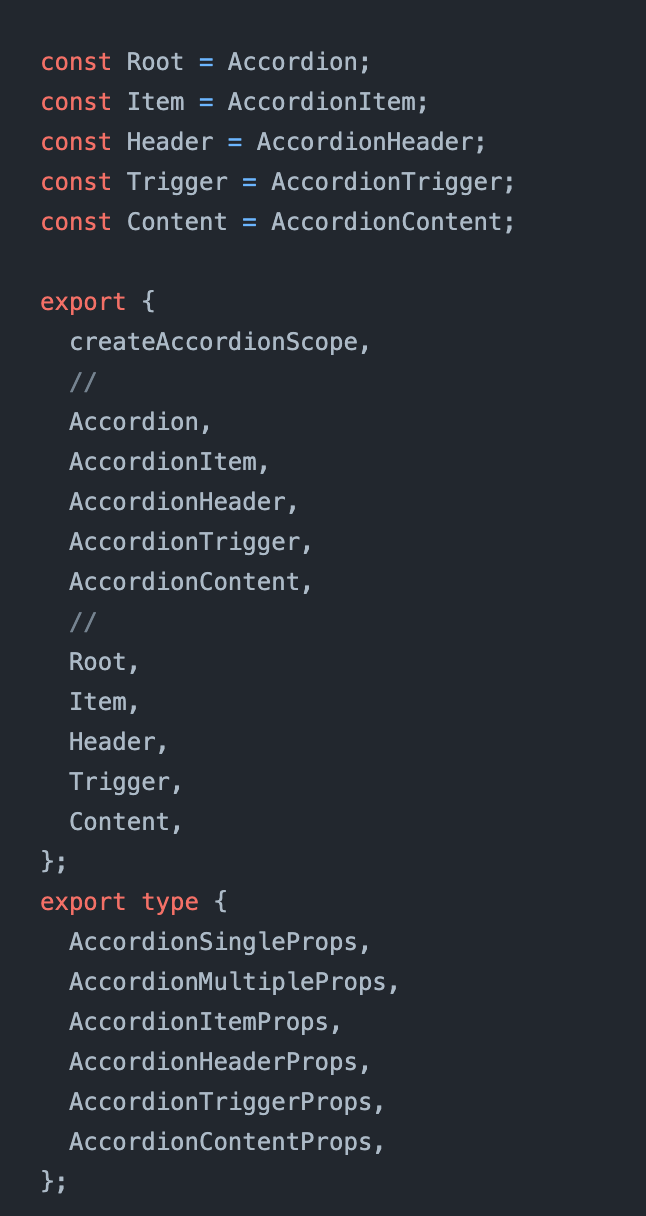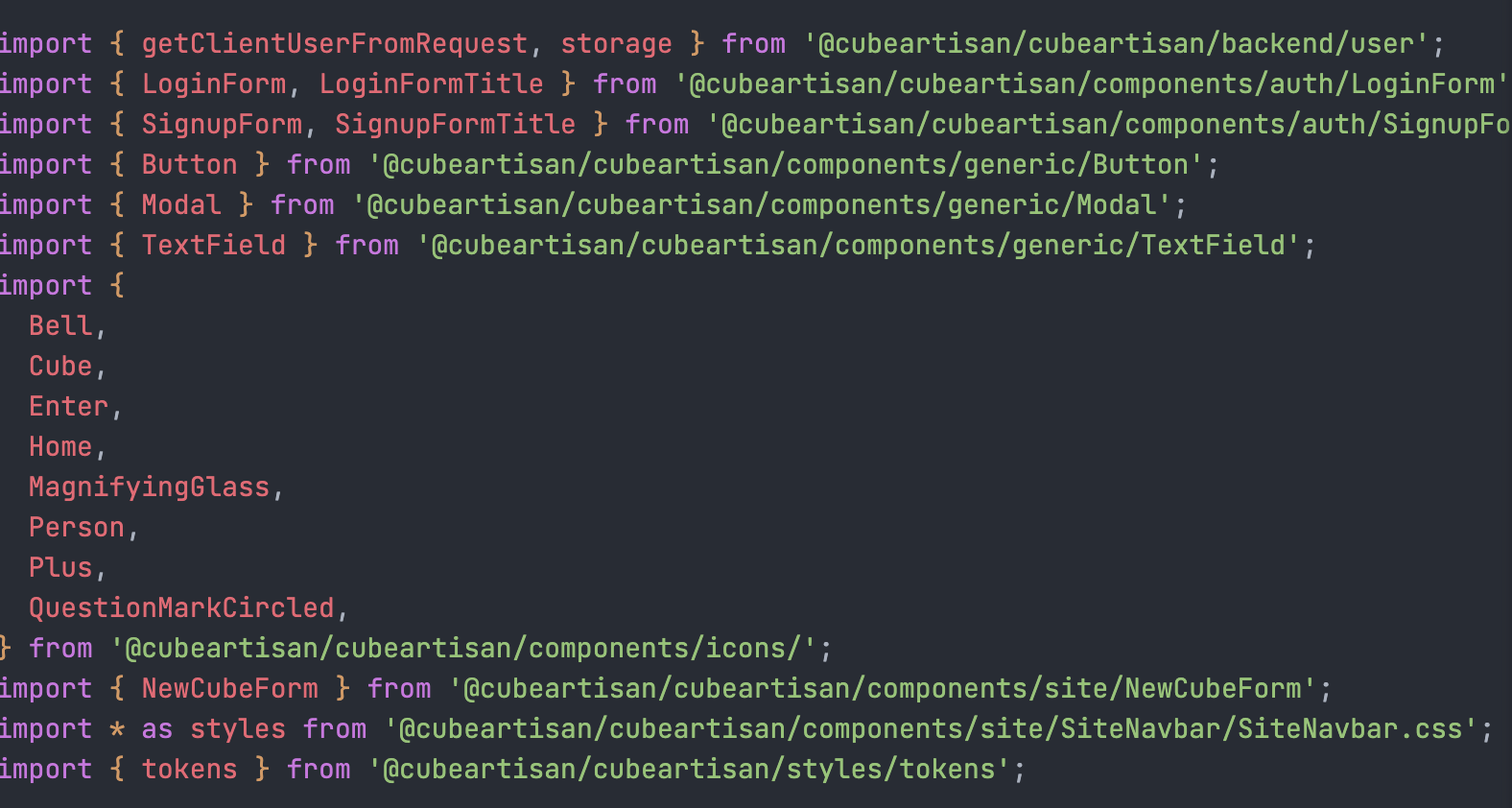Say I have a `Card` component, How can I have a `Card.Header` component?
Say I have a
Card component, How can I have a Card.Header component?32 Replies
Card.Header = HeaderComponent
TS error:
Property 'Header' does not exist on type 'ParentComponent<Props>'it works though, thanks!! just gotta fix that TS error now
kobalte has good examples of this pattern and has good typing
although that solution is a little different
in kobalte it is done with index files
you don't need to type cast as any
there are better ways to do that
you could also achieve the index.ts behavior with a default export from a component file
like how radix does it
actually, they don't default export, they just export an object

you can also type a composite component and add that to the typing:
this is the nicer way of doing it without typecasting to any
Obviously the solution that thetarnav shared is very simple to understand. What you have shown is something that ends up with:
export { Root, Header };
I don't see how that allows Card.Header. In the solution of thetarnav there is an assignment:
(Root as any).Header = Header; which makes it clear I can now call Card.Headerin the index.ts example, you are exporting an object as default from a folder so you do a default import and it gives you the object
Ah right
so you literally coded it for me haha
@jesseb34r one thing. I need to write
Card.Root
instead of just Cardyeah, hard to get around that
Solid Playground
Quickly discover what the solid compiler will generate from your JSX template
here is an example with code
this one allows for named import by doing
export const Card = { Root, Header }
the composite method I showed might allow that? let me tinker with it for a secSolid Playground
Quickly discover what the solid compiler will generate from your JSX template
Solid Playground
Quickly discover what the solid compiler will generate from your JSX template
yeah the composite method allows for not needing root
as does @otonashi9 's examples
Solid Playground
Quickly discover what the solid compiler will generate from your JSX template
the reason why your second example works but the first try in the question above didn't is because of
vs
right?
@otonashi9
yeah
that's why you need the composite typing for the arrow function version
or i guess you could do it without it
wouldn't type error on assigning
Card.Header
https://playground.solidjs.com/anonymous/3a771f71-814c-4368-9a40-199961aeae73@otonashi9 one thing is that for all my other components I have default imports, like:
- am I suffering from OCD?
- if not, better to move everything as non default export? is it better?
- if not, go for thetarnav solution (which allows default import)?
you can just export default
^
soz then. Gonna try it out!
I prefer named imports, idk why, I had a reason when I made the decision to be consistent about that like a year ago
I feel like it was a good reason then but I've forgotten it now
named imports are easier to refactor, can't remember what else there was
but I also have to just give up on any OCD organization because my main project is not mine but is a joint project with someone else and they really want imports to be full path, no relative, and use the
organization/repo/* syntax except that in this case the org and repo both have the same name
it's ugly
Yeah there are advantages:
1. Say you export
foo, import { bar } from Foo will fail but import bar from Foo will not fail
=> better for refactoring
=> better for searching things in a reliable way
2. You may want to export other things int he future from the same file.
=> with default export sometimes you'd need to convert to exporting an object.
That said, I still like default exports where I'm confident I won't need to refactor names, like a generic "Button" component...I think another thing was I wanted it to be easier to import multiple things from the same file and didn't want to have to choose a default export
also I like arrow functions and you can't do
export default const MyComponent = () => {}
you have to do a two liner
which is not nearly so nice as just